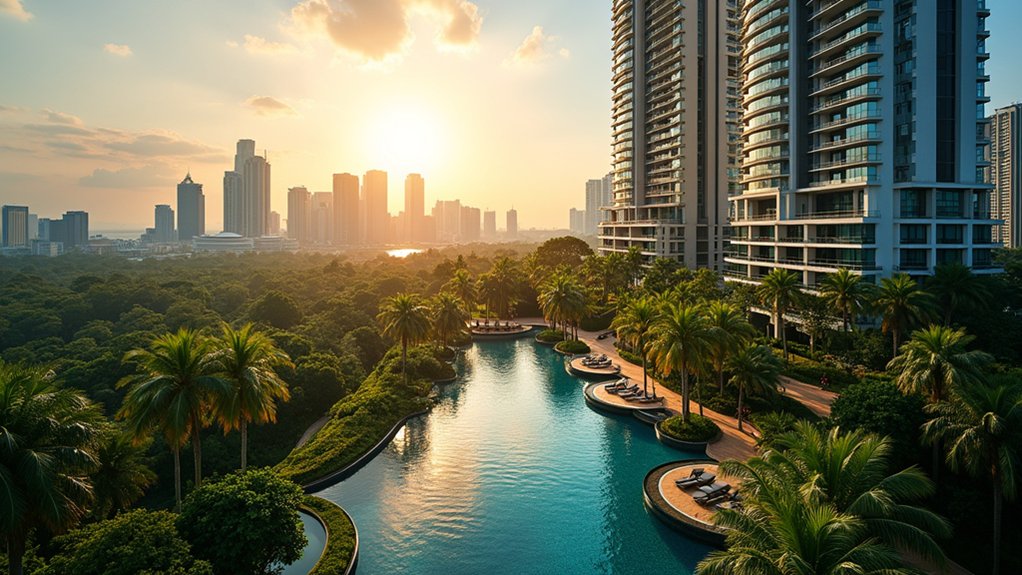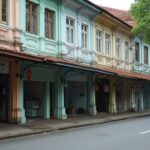As record-breaking transactions continue to reshape Singapore’s real estate landscape, a contentious debate has emerged surrounding the valuation and investment merit of freehold condominiums in the Core Central Region (CCR).
In this region, premium freeholds command approximately 10–20% over 99-year leasehold equivalents, averaging $2,850 psf compared to $2,450 psf for their leasehold counterparts in 2025. Recent high-profile transactions have intensified this discourse, exemplified by a notable deal that witnessed the price per square foot escalate from $4,253 in 2024 to $6,274 in 2025, representing a 47.5% appreciation and underscoring the dramatic acceleration in CCR valuations.
These valuations grew 26.2% from $2,326 psf in Q2 2025 to $2,937 psf by July–August. Boutique freehold developments have achieved substantial price realizations, with One Meyer reaching $3,146 psf and Cairnhill attaining $2,710 psf during 2025. These benchmarks reflect scarcity-driven premiums sustained by limited freehold land availability in central locations.
Boutique freehold developments achieved substantial price realizations, with scarcity-driven premiums sustaining valuations amid limited central land availability.
New launches in 2025 are mainly positioned between $2,000–$3,100 psf depending on district classification and project scale, while entry-level freehold units commence near $1.5 million. This contrasts sharply with ultra-premium CCR projects exceeding $50 million. Comparative Market Analysis examining recent transactions of similar properties provides benchmark values for these substantial price variations. Freehold properties demonstrate enduring value preservation through their perpetual land ownership structure, distinguishing them from leasehold alternatives that face eventual lease expiration.
The market divide reflects divergent buyer motivations and investment theses. Owner-occupiers and legacy-focused purchasers prioritize freehold status for perceived permanence and unrestricted financing terms unencumbered by lease length constraints. Such long-term ownership appeals to families seeking inter-generational wealth accumulation without the constraints of diminishing lease duration.
In contrast, yield-oriented investors contend that 99-year leaseholds in prime locations present superior risk-adjusted returns through lower entry prices and comparable rental yields. Remarkably, rental yields frequently fail to justify the elevated acquisition costs associated with freehold premiums, prompting reconsideration among capital-efficiency conscious investors.
Supply constraints perpetuate exclusivity, as freehold releases remain rare with government land predominantly allocated to 99-year leasehold tenure. Current pipeline concentrations in Districts 15–16 and East Coast near forthcoming MRT infrastructure reflect strategic positioning within limited freehold inventory.
This structural scarcity maintains valuation support, though contemporaneous debate questions whether current price levels represent fundamental value or speculative appreciation disconnected from rental fundamentals and long-term holdability metrics.





